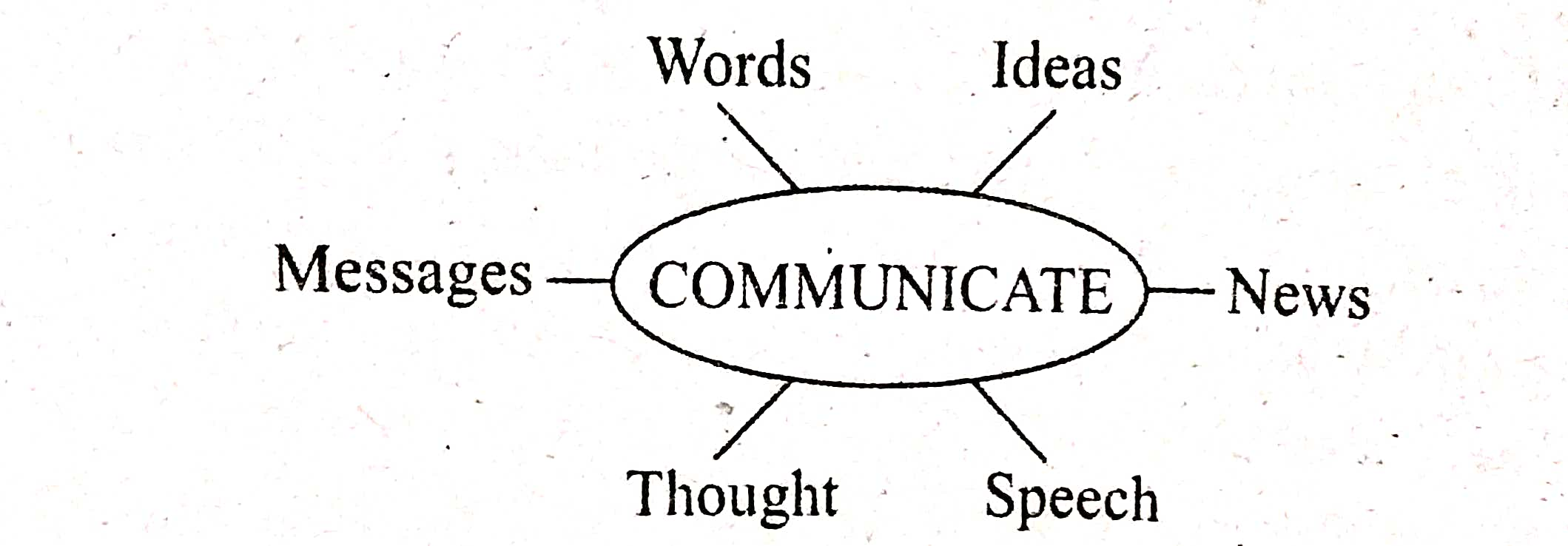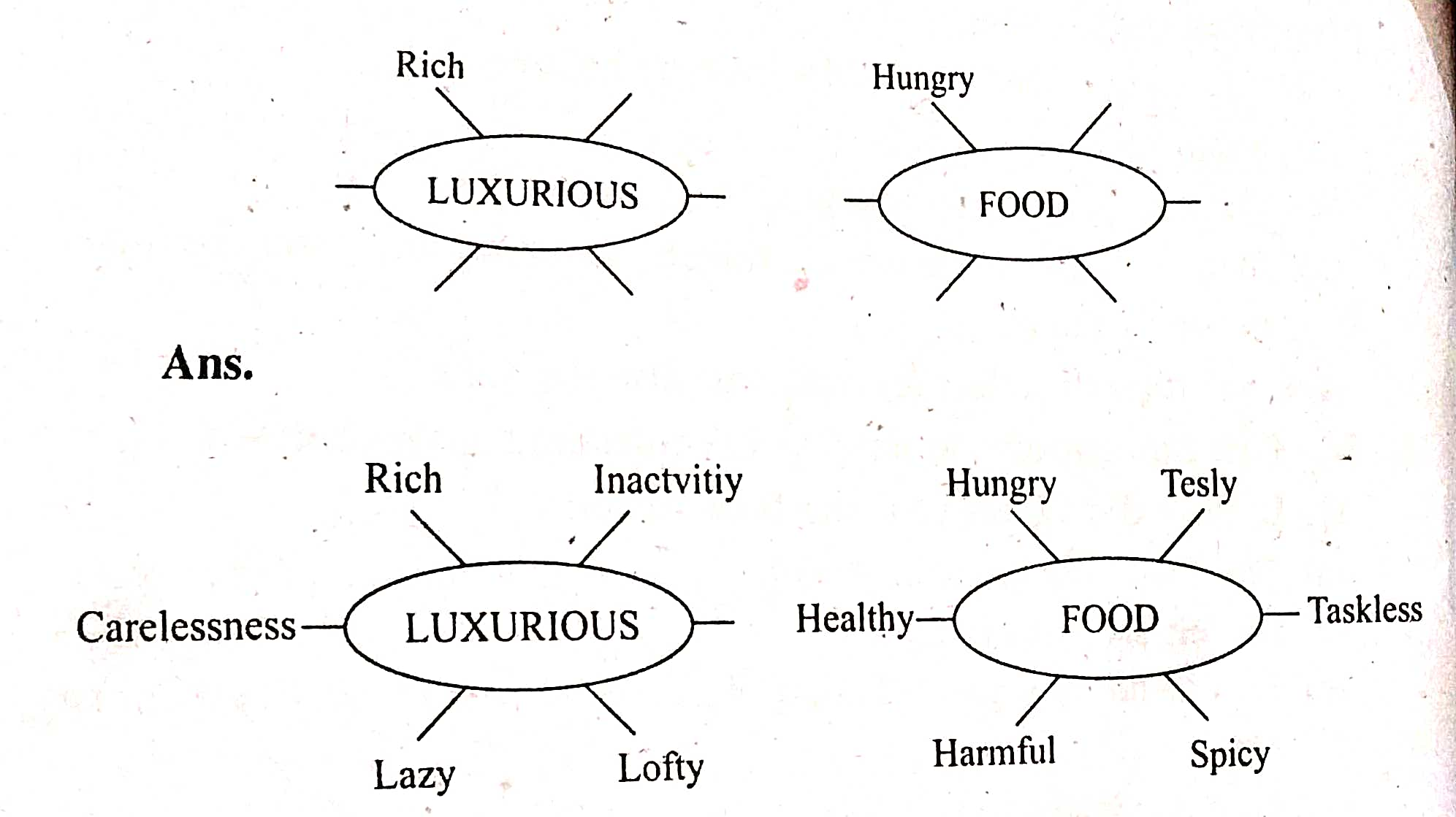Bihar Board Class 6 English Akbar and Birbal Text Book Questions and Answers
11. Akbar and Birbal
(अकबर और बीरबन)
TEXT QUESTIONS AND THEIR ANSWERS
B. COMPREHENSION :
B.1. Think and Tell:
Q. 1. Who was Akbar?
Ans. Akbar was a Mugal Emperor in India.
Q. 2. Who were ‘Nav Ratnas’ ?
Ans. Nine famous persons of Akbar’s court were Nav Ratnas.
Q. 3. Why did Akbar love Birbal ?
Ans. Akbar loved Birbal for his wisdom, wit and humour.
Q. 4. What was the Pandit’s challenge?
Ans. The Pandit challenged Akbar that if his courtiers found out his mother tongue by tomorrow he would accept them wise. But if they failed to do so, he should accept him superior to all of them.
Q. 5. Why was the Pandit surprised at Birbal’s answers ?
Ans. Pandit was surprised at Birbal’s answer because Birbal had got the solution of his mother tongue.
B.2. Think and write :
B.2.1. Answer in a word or a sentence:
Q. 1. What was Akbar’s full name?
Ans. Akbar’s full name was Jalaluddin Muhammad Akbar.
Q. 2. Who was Birbal ?
Ans. Birbal was one of the ‘Nav-Ratna’ in the court of Akbar.
Q. 3. Where did’ Birbal go at night?
Ans. Birbal went to Pandit’s bedroom at night.
Q. 4. Who answered the Pandit’s question?
Ans. Birbal answered the Pandit’s question.
Q. 5. Why did Akbar praise Birbal ?
Ans. Akbar praised Birbal for his timely wisdom.
B.2.2. Answer in not more than 50 words.
Q. 1. How can you say that Akbar was a patron of learned people?
Ans. Akbar was wise king. He evaluated the people around him for their importance and good qualities. So, there were nine well-qualified and efficient people patronised by him. They were called Navaratnas. They, I can say that Akbar was a patron of learned man.
Q. 2. How did Birbal find out the Pandit’s mother tongue ?
Ans. During the night, when the pandit was slept, Birbal went into his room. He tickled one of the Pandit’s ears of the pandit with a grass. The pandit was disturbed. He turned to the other side and slept. Birbal again tickled in his next ear. This time the pandit became distressed and spoke in his mother tongue, ‘Yevvurura adi’. Thus, birbal knew that the pandit’s mother tongue was Telugu.
Q. 3. Wisdom is applying one’s mind to the problem and finding out solution. How does it apply to Birbal ?
Ans. Wisdom is a great quality of a body which enables a person to face the problems. Its quantity or presence in one’s mind is somewhat less or more. Birbal had enough intelligence or wisdom to face his challenges.
C. WORD POWER
C.1. Go through the text again and again and guess the meaning of the following words:
pale, still, burry, faintly, wrapped, sneezed
Ans.
Pale – yellowish, fainted, very light
Still – now also
Burry – to dig and put down the earth
Faintly – very slowly
Wrapped – covered
Sneezed – the act of sneezing, to make explosive sound while emitting air suddenly from the nose.
C.2. Find out the words of opposite meaning:
Friend, death, wet, awake, unhappy
Ans. words opposite
Friend enemy
Death birth
Wet dry
Awake slept
Unhappy happy
D. WORD STRESS
In English if a word has more than one syllable, one of the syllables is pronounced more strongly than others. In the following words, the stress is shown by à vertical stroke (‘) before the stressed syllable.
Stress on the first syllable Stress on the second syllable
‘army a’bout
‘baby be’cause
‘teacher to’day
‘paper en’joy
‘nation num’ber
E. LET’S TALK AND WRITE
Q. (a) Discuss with your friends what will you do if you were a king.
Ans. A discussion: If I were a King.
Rahim : What will you do, Karan, if you were a king.
Karan : If I were a king, I would be very interested and dutiful in my work.
Rahim : How could you maintain peace and prosperity of the state?
Karan I would investigate myself in all the state about the problems and find their measures.
Rahim : If I were a king, I would lead a life copying that of Mahatma Gandhi and help everybody to comet to be a true citizen.
Karan : Let’s see whether we become a king or not.
Q. (b) Write a short essay on ‘If I were a king’.
Ans. ‘If I Were A King’:
If I were a king, I would do lot of works. At first I would pay more attention to the development of subjects. I would pay attention to education, employment and health. I would provide irrigation facilities to the farmers. For this purpose I would get wells dug in each corner of my kingdom. I would establish a number of schools for the study of my subjects. I would establish hospitals for the subjects. Even I would end corruptions from the kingdom. I would make people prosperous life. I would do it if I were a king.
F. TRANSLATION:
F.1. Translate into English:
एक गाँव था ।
गाँव के पास एक नदी थी ।
नदी में पानी था ।
नदी में एक नाव भी थी ।
नाव में कोई नहीं था ।
Ans. There was a village.
There was a river near the village.
There was water in the river.
There was also a boat in the river.
There was no one in the boat.
F.2. Translate into your mother-tongue :
There was a town.
There were many muhallas in the town.
There were many houses in the muhallas.
There were many rooms in the houses.
There were many doors and windows in the rooms.
Ans. एक शहर था ।
शहर में कई मुहल्ले थे ।
मुहल्लों में अनेक घर थे ।
घरों में अनेक कमरे थे ।
कमरों में अनेक दरवाजे और खिड़कियाँ थीं ।
Read more- Click here
You Tube – Click here


